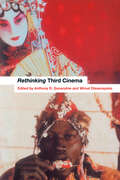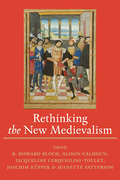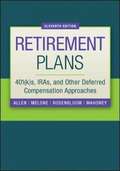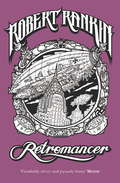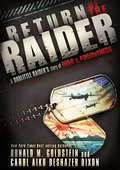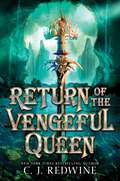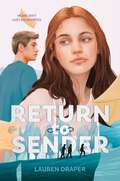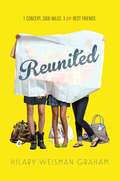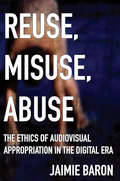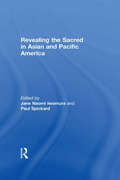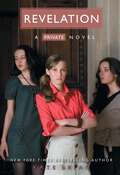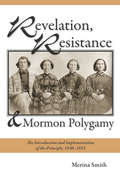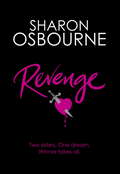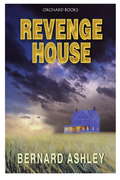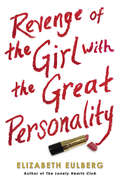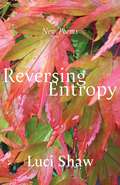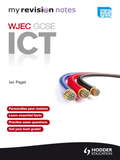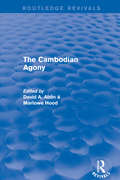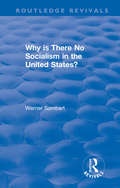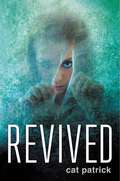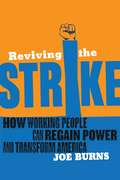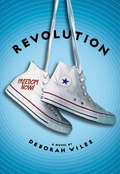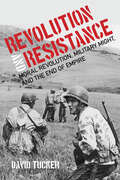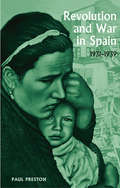- Table View
- List View
Rethinking Third Cinema: The Role Of Anti-colonial Media And Aesthetics In Postmodernity (Kultur: Forschung Und Wissenschaft Ser. #13)
by Wimal Dissanayake Anthony R. GuneratneThis important anthology addresses established notions about Third Cinema theory, and the cinema practice of developing and postcolonial nations. The 'Third Cinema' movement called for a politicised film-making practice in Africa, Asia and Latin America, one which would take on board issues of race, class, religion, and national integrity. The films which resulted from the movement, from directors such as Ousmane Sembene, Satyajit Ray and Nelson Pereira dos Santos, are among the most culturally signficant, politically sophisticated and frequently studied films of the 1960s and 1970s. However, despite the contemporary popularity and critical attention enjoyed by films from Asia and Latin America in particular, Third Cinema and Third Cinema theory appears to have lost its momentum.Rethinking Third Cinema seeks to bring Third Cinema and Third Cinema theory back into the critical spotlight. The contributors address the most difficult and challenging questions Third Cinema poses, suggesting new methodologies and redirections of existing ones. Crucially, they also re-examine the entire phenomenon of film-making in a fast-vanishing 'Third World', with case studies of the cinemas of India, Iran and Hong Kong, among others.
Rethinking the New Medievalism
by R. Howard Bloch, Alison Calhoun, Jacqueline Cerquiglini- Toulet, Joachim Küpper, Jeanette Patterson,Twenty years after Stephen Nichols transformed the study of medieval literature, leaders in the field pay tribute to his work and expand on it.In the early 1990s, Stephen Nichols introduced the term "new medievalism" to describe an alternative to the traditional philological approach to the study of the romantic texts in the medieval period. While the old approach focused on formal aspects of language, this new approach was historicist and moved beyond a narrow focus on language to examine the broader social and cultural contexts in which literary works were composed and disseminated. Within the field, this transformation of medieval studies was as important as the genetic revolution to the study of biology and has had an enormous influence on the study of medieval literature. Rethinking the New Medievalism offers both a historical account of the movement and its achievements while indicating—in Nichols’s innovative spirit—still newer directions for medieval studies.The essays deal with questions of authorship, theology, and material philology and are written by members of a wide philological and critical circle that Nichols nourished for forty years. Daniel Heller-Roazen’s essay, for example, demonstrates the conjunction of the old philology and the new. In a close examination of the history of the words used for maritime raiders from Ancient Greece to the present (pirate, plunderer, bandit), Roazen draws a fine line between lawlessness and lawfulness, between judicial action and war, between war and public policy. Other contributors include Jack Abecassis, Marina Brownlee, Jacqueline Cerquiglini-Toulet, Andreas Kablitz, and Ursula Peters.
Retirement Plans: 401(k)s, IRAs and Other Deferred Compensation Approaches
by Joseph Melone Jerry Rosenbloom Dennis Mahoney Everett T. AllenRetirement Plans (formerly titled Pension Planning through the ninth edition) is a classic, relied upon by generations of faculty and thousands of professionals throughout the world. It reliably provides the reader with the features, costs, investment opportunities, and regulatory issues governing all the various types of retirement and other deferred compensation plans. The 11th edition keeps the book at the forefront of the discipline, with extensive coverage of Moving Ahead for Progress in the 21st Century Act and the American Taxpayer Relief Act, a discussion of the effects of behavioral economics on retirement planning, a detailed look at the enormous growth in target date funds, and much more.
Retromancer: Book 9 of the Brentford Trilogy
by Robert RankinThere is big and evil magic abroad upon the face of the Earth. History has been changed. The Germans have won WWII. America is a nuclear wasteland. And worst of all, the breakfast menu at The Wife's Legs Café in Brentford is serving Bratwurst rather than the proper big boys' British banger. Something is Not Right. And when the world's all wrong and it needs setting right, who're you gonna call?Hugo Rune, that's who. A man who offers the world his genius, and asks only, in return, that the world cover his expenses.And so, with the aid of his faithful acolyte and companion Rizla, the guru's guru, also known as the hokus bloke, the Lad Himself and the Retromancer*, sets out to rewrite history the way it should be. Together they return to war-torn London, to solve the twelve cosmic conundra based on Hugo Rune's personal tarot deck, each one leading them closer to a final terrifying confrontation.They must match their wits against beautiful spies, advanced alien technology, killer robots and death rays, do battle with an ancient god, and come face to face once more with Hugo Rune's arch-enemy, the sinister Count Otto Black, all the while finding time to drink ale, talk the toot and dine out in some of London's swankiest eateries. Without ever paying the bill.
Return of the Raider: A Doolittle Raider's Story of War & Forgiveness
by Mr. Donald M. Goldstein Ms. Carol Aiko DixionJacob DeShazer, a farm boy from Oregon, joined the army Air Corps at age 27. He had always wanted to be a pilot, but when he did not qualify, an opportunity opened to become a bombardier. By luck of the draw, Jacob found himself as one of the 80 men participating in the famous Doolittle Raid over Japan shortly after the bombing of Pearl Harbor.During the raid, Jacob and his fellow crewmen bailed out over China and were taken captive by the Japanese as prisoners of war for more than three years. In that Japanese POW camp, every day facing torture and death, Jacob&’s path changed when his request for a Bible was fulfilled. Jacob came back to the Christian faith in which he was raised, and made a vow to God in his prison cell that if he survived he would return to Japan, not as a warrior but as a missionary.The Jacob DeShazer story is not only about the bravery of a soldier during war, but also about how powerful love and forgiveness can be when given to the enemy.
Return of the Vengeful Queen
by C. J. RedwineFrom C. J. Redwine, the author the New York Times bestselling Ravenspire series, comes the stunning conclusion to the fantasy duology that began with Rise of the Vicious Princess. Perfect for fans of These Violent Delights, And I Darken, and Ash Princess!Charis Willowthorn is a queen without a throne. A Rakuuna invader holds Charis's kingdom of Calera captive, leaving her desperate—and ruthlessly committed to vengeance. But with her allies reluctant to intervene and her enemies hunting her across the open sea, Charis is left with only one choice: forge a temporary alliance with Tal Penbyrn, the boy who betrayed her—and, at all costs, keep him out of her heart. Tal is imprisoned, both by the Rakuuna and the weight of his guilt. Though he once betrayed his love, he knows that he can help turn the tide in Charis’s favor, if only he can regain her trust. But the Rakuuna have an ally of their own—one who knows Charis’s every move and will stop at nothing to see her destroyed.With threats closing in and every allegiance in doubt, Charis must be stronger, faster, and more vicious than her enemies to reclaim her kingdom—and her future.
Return to Sender
by Lauren DraperThis layered and compelling cozy mystery is all about found family, first love, and one town’s tragedies, perfect for fans of Melina Marchetta, Kristin Dwyer, and Nina LaCour.Brodie McKellon didn’t leave town in handcuffs; not exactly. But all the same, in only one night, she lost her best friends and her home. And that same night, the town of Warwick lost the Adder Stone, a supposedly magical ring of local legend.The events, Brodie maintains, were not related.Four years later, Brodie’s returned to Warwick to identify the real thief and get back everything she lost. She can clear her name, win back her friends Elliott and Levi, and save Gran’s house from the bank.But as Brodie starts investigating, she gets pulled into a different mystery, of three friends and their “dead letters”—mail that’s been lost over the years. And soon she finds that there are times when the things you find aren’t the things you even knew you had lost. A house becomes a home. Some friends become family. And other friends, well, they might become something more. As long as Brodie can be brave enough to find herself.
Reunited
by Hilary Weisman Graham1 concert. 2,000 miles. 3 ex-best friends. Can a road trip restore harmony?Alice, Summer, and Tiernan used to be best friends—as well as the self-proclaimed biggest fans of the band Level3. But when the band broke up, so did their friendship. Now, four years later, they’ve just graduated from high school. When Level3 announces a one-time reunion show in Texas, Alice impulsively buys tickets and invites her two former friends along for the trip. Reluctant at first, both girls agree to go, each with her own ulterior motive. But old resentments and other roadblocks—from unintended detours to lost concert tickets—keep getting in the girls’ way. Will their friendship get an encore, or is the show really over?
Reuse, Misuse, Abuse: The Ethics of Audiovisual Appropriation in the Digital Era
by Jaimie BaronIn contemporary culture, existing audiovisual recordings are constantly reused and repurposed for various ends, raising questions regarding the ethics of such appropriations, particularly when the recording depicts actual people and events. Every reuse of a preexisting recording is, on some level, a misuse in that it was not intended or at least anticipated by the original maker, but not all misuses are necessarily unethical. In fact, there are many instances of productive misuse that seem justified. At the same time, there are other instances in which the misuse shades into abuse. Documentary scholars have long engaged with the question of the ethical responsibility of documentary makers in relation to their subjects. But what happens when this responsibility is set at a remove, when the recording already exists for the taking and repurposing? Reuse, Misuse and Abuse surveys a range of contemporary films and videos that appropriate preexisting footage and attempts to theorize their ethical implications.
Revealing the Sacred in Asian and Pacific America
by Paul Spickard Jane Naomi IwamuraFirst published in 2003. Routledge is an imprint of Taylor & Francis, an informa company.
Revelation (Private)
by Kate BrianThe biggest mystery of all...and Reed is dying to learn the truth. Two months after Cheyenne Martin was found dead in her Billings House dorm room, exclusive Easton Academy is rocked by another stunning revelation: Cheyenne was murdered. No one knows who the killer is, but everyone agrees that Reed Brennan, who took over Cheyenne's role as Billings's president, gained the most from her death. Once the most powerful girl on campus, Reed is now powerless to stop her classmates' accusing whispers. Rumors begin to swirl that she killed Cheyenne. And just like that, Reed is kicked out of Billings. She's lost everything -- her friends, her home, her boyfriend -- and Reed knows the only way to get it all back is to figure out who really murdered Cheyenne. And she has to do it fast because the killer is still out there. The more Reed investigates, the more she uncovers. And as any Billings Girl knows...secrets can be deadly.
Revelation, Resistance, and Mormon Polygamy: The Introduction and Implementation of the Principle, 1830–1853 (G - Reference,information And Interdisciplinary Subjects Ser.)
by Merina SmithIn Revelation, Resistance, and Mormon Polygamy historian Merina Smith explores the introduction of polygamy in Nauvoo, a development that unfolded amid scandal and resistance. Smith considers the ideological, historical, and even psychological elements of the process and captures the emotional and cultural detail of this exciting and volatile period in Mormon history. She illuminates the mystery of early adherents' acceptance of such a radical form of marriage in light of their dedication to the accepted monogamous marriage patterns of their day. When Joseph Smith began to reveal and teach the doctrine of plural marriage in 1841, even stalwart members like Brigham Young were shocked and confused. In this thoughtful study, Smith argues that the secret introduction of plural marriage among the leadership coincided with an evolving public theology that provided a contextualizing religious narrative that persuaded believers to accept the principle. This fresh interpretation draws from diaries, letters, newspapers, and other primary sources and is especially effective in its use of family narratives. It will be of great interest not only to scholars and the general public interested in Mormon history but in American history, religion, gender and sexuality, and the history of marriage and families.
Revenge
by Sharon OsbourneAmber and Chelsea Stone are sisters who share the same dream - huge, global fame. As children they were close, but success has pulled them apart. Both have the looks, the talent, and the star quality - but only one has the ruthless ambition to make it to the very top. And she will stop at nothing to get what she wants.
Revenge House
by Bernard AshleyWhen Sophia and her mum move into Revenge House, on the lonely and windswept Romney Marshes, little do they know how the timbers of the ancient building are steeped in the secretive life of the marshes. They are both struggling to cope with the death of Sophia's father, although Sophia is embarking on a tentative romance with a local boy who is sensitive to her feelings. But suddenly they all find themselves sucked in to a criminal underworld that will eventually threaten their lives.
Revenge of the Girl With the Great Personality
by Elizabeth EulbergA hilarious new novel from Elizabeth Eulberg about taking the wall out of the wallflower so she can bloom.Don't mess with a Girl with a Great Personality.Everybody loves Lexi. She's popular, smart, funny ... but she's never been one of those girls, the pretty ones, who get all the attention from guys. And on top of that, her seven-year-old sister, Mackenzie, is a terror in a tiara, part of a pageant scene where she gets praised for her beauty (with the help of fake hair and tons of makeup). Lexi's sick of it. She's sick of being the girl who hears about kisses instead of getting them. She's sick of being ignored by her longtime crush, Logan. She's sick of being taken for granted by her pageant-obsessed mom. And she's sick of having all her family's money wasted on a phony pursuit of perfection.The time has come for Lexi to step out from the sidelines. Girls without great personalities aren't going to know what hit them. Because Lexi's going to play the beauty game -- and she's in it to win it.
Reversing Entropy: Poems
by Luci ShawFrom the pen of beloved poet Luci Shaw comes a new collection that celebrates inspired creativity as an antidote to chaos. The poet's own words best describe the heart of this pinnacle collection of new work by beloved writer Luci Shaw: Entropy: A measure of the molecular disorder, or randomness, of a system, its lack of order or predictability, resulting in a gradual decline into disorder. Our universe, and the systems within it, constantly shift from their created states of order towards disorder, or chaos. The second law of thermodynamics asserts that entropy, or disorder, always increases with time. Creative human activities such as art, architecture, music, story or film are human efforts to halt and reverse this loss of meaning. Thus, smaller systems, like individual poems, become highly ordered as they receive energy from outside themselves, from the poet. They reverse entropy because they are moving from a state of disorder (all the random ideas, words and phrases available to the writer) into an orderly form designed by the writer to create meaningful images and concepts in the reader's mind (which is where the word "imag-ination" comes from.) This transfer of images, concepts and ideas into the mind of a reader is the task of poetry and the calling of the poet. Just as a composer of music gathers rhythms, notes, melodies, or harmony, organizing them into fugues or sonatas or concertos, so poets work and write to discover ways of arranging their responses to the world in words that introduce meaning and beauty in the mind of the reader. Which is what I've been trying to do for most of my life
Revision Notes: WJEC ICT for GCSE
by Ian PagetMy Revision Notes: WJEC ICT for GCSE has been written by experienced teachers and examiners so that you can be confident that it covers only the facts and ideas you will be expected to recall and use in the exam.Essential facts are carefully organised to make revising easier.Exams tips show you how to avoid losing marks and get the best grade.Check your understanding questions support you in the run-up to the exams, with answers provided free online at www.hodderplus.co.uk.This book will help you plan and pace your revision to suit your learning needs and can be integrated with other revision techniques you are using.
Revival: The Cambodian Agony (1990)
by David A. Ablin M. HoodThis title was first published in 1990: Cambodia, it has been said, has gone through the most radical social upheaval and transformation of any country in recorded history. From the overthrow of Prince Sihanouk, who ruled for 29 year, in 1970 to the victory of the Cambodian Communist Party in 1975, Cambodia suffered massive saturation bombing and an unusually violent civil war. It is estimated that half a million people of the seven million total population died. From 1975 to the end 1978 as many as another three million perished because of the brutal policies of the government, and spurred the civil war that has been simmering ever since. In this book, the world's leading experts on Cambodia and the politics of Indochina address the major issues facing Cambodia since the overthrow of the Pol Pot regime in 1978.
Revival: Why is there no Socialism in the United States? (Routledge Revivals)
by W SombartWhy is the United States the only advanced capitalist country with no labor party? This question is one of the great enduring puzzles of American political development, and it lies at the heart of a fundamental debate about the nature of American society. Tackling this debate head-on, Robin Archer puts forward a new explanation for why there is no American labor party-an explanation that suggests that much of the conventional wisdom about "American exceptionalism" is untenable. Conventional explanations rely on comparison with Europe. Archer challenges these explanations by comparing the United States with its most similar New World counterpart-Australia. This comparison is particularly revealing, not only because the United States and Australia share many fundamental historical, political, and social characteristics, but also because Australian unions established a labor party in the late nineteenth century, just when American unions, against a common backdrop of industrial defeat and depression, came closest to doing something similar. Archer examines each of the factors that could help explain the American outcome, and his systematic comparison yields unexpected conclusions. He argues that prosperity, democracy, liberalism, and racial hostility often promoted the very changes they are said to have obstructed. And he shows that it was not these characteristics that left the United States without a labor party, but, rather, the powerful impact of repression, religion, and political sectarianism.
Revived (Forgotten Series #2)
by Cat PatrickAs a little girl, Daisy Appleby was killed in a school bus crash. Moments after the accident, she was brought back to life.A secret government agency has developed a drug called Revive that can bring people back from the dead, and Daisy Appleby, a test subject, has been Revived five times in fifteen years. Daisy takes extraordinary risks, knowing that she can beat death, but each new death also means a new name, a new city, and a new life. When she meets Matt McKean, Daisy begins to question the moral implications of Revive, and as she discovers the agency's true goals, she realizes she's at the center of something much larger -- and more sinister -- than she ever imagined.
Reviving the Strike: How Working People Can Regain Power and Transform America
by Joe BurnsIn Reviving the Strike, Joe Burns draws on economics, history and current analysis in arguing that the labor movement must redevelop an effective strike based on the now outlawed traditional labor tactics of stopping production and workplace-based solidarity.
Revolution (The Sixties Trilogy #2)
by Deborah Wiles*A 2014 NATIONAL BOOK AWARD FINALIST*It's 1964, and Sunny's town is being invaded. Or at least that's what the adults of Greenwood, Mississippi, are saying. All Sunny knows is that people from up north are coming to help people register to vote. They're calling it Freedom Summer.Meanwhile, Sunny can't help but feel like her house is being invaded, too. She has a new stepmother, a new brother, and a new sister crowding her life, giving her little room to breathe. And things get even trickier when Sunny and her brother are caught sneaking into the local swimming pool -- where they bump into a mystery boy whose life is going to become tangled up in theirs.As she did in her groundbreaking documentary novel COUNTDOWN, award-winning author Deborah Wiles uses stories and images to tell the riveting story of a certain time and place -- and of kids who, in a world where everyone is choosing sides, must figure out how to stand up for themselves and fight for what's right.
Revolution and Resistance: Moral Revolution, Military Might, and the End of Empire
by David TuckerWestern imperialism has always been shadowed by terrorism and insurgency.In this provocative history, David Tucker argues that "irregular warfare"—including terrorism, guerrilla warfare, and other insurgency tactics—is intimately linked to the rise and decline of Euro-American empire around the globe. Tracing the evolution of resistance warfare from the age of the conquistadors through the United States’ recent ventures in Afghanistan and Iraq, Revolution and Resistance demonstrates that contemporary conflicts in the Middle East, Africa, and Asia are simply the final stages in the unraveling of Euro-American imperialism. Tucker explores why it was so difficult for indigenous people and states to resist imperial power, which possessed superior military technology and was driven by a curious moral imperative to conquer. He also explains how native populations eventually learned to fight back by successfully combining guerrilla warfare with political warfare. By exploiting certain Euro-American weaknesses—above all, the instability created by the fading rationale for empire—insurgents were able to subvert imperialism by using its own ideologies against it. Tucker also examines how the development of free trade and world finance began to undermine the need for direct political control of foreign territory.Touching on Pontiac’s Rebellion of 1763, Abd el-Kader’s jihad in nineteenth-century Algeria, the national liberation movements that arose in twentieth-century Palestine, Vietnam, and Ireland, and contemporary terrorist activity, Revolution and Resistance shows how changing means have been used to wage the same struggle. Emphasizing moral rather than economic or technological explanations for the rise and fall of Euro-American imperialism, this concise, comprehensive book is required reading for anyone seeking to understand the character of contemporary conflict.
Revolution and Resistance: Moral Revolution, Military Might, and the End of Empire
by David TuckerThis exploration of the links between imperialism and insurgency is “a reliable introduction to a complex subject” (Dennis E. Showalter, coauthor of If the Allies Had Fallen).In this provocative history, David Tucker argues that “irregular warfare”—including terrorism, guerrilla warfare, and other insurgency tactics—is intimately linked to the rise and decline of Euro-American empire around the globe. Tracing the evolution of resistance warfare from the age of the conquistadors through the United States’ recent ventures in Afghanistan and Iraq, Revolution and Resistance demonstrates that contemporary conflicts in the Middle East, Africa, and Asia are simply the final stages in the unraveling of Euro-American imperialism.Tucker explores why it was so difficult for indigenous people and states to resist imperial power, which possessed superior military technology and was driven by a curious moral imperative to conquer. He also explains how native populations eventually learned to fight back by successfully combining guerrilla warfare with political warfare. By exploiting certain Euro-American weaknesses—above all, the instability created by the fading rationale for empire—insurgents were able to subvert imperialism by using its own ideologies against it. Tucker also examines how the development of free trade and world finance began to undermine the need for direct political control of foreign territory.Touching on Pontiac’s Rebellion of 1763, Abd el-Kader’s jihad in nineteenth-century Algeria, the national liberation movements in twentieth-century Palestine, Vietnam, and Ireland, and contemporary terrorist activity, this book shows how changing means have been used to wage the same struggle. Emphasizing moral rather than economic or technological explanations for the rise and fall of Euro-American imperialism, this concise, comprehensive book is required reading for anyone seeking to understand the character of contemporary conflict.
Revolution and War in Spain, 1931-1939
by Paul PrestonThis collection of essays constitutes a magnificent monument to recent scholarship on the Second Republic and the Civil War. It is indispensable for a full understanding of the period.' - Raymond Carr
